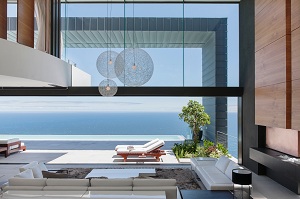
Business Advisory Services
Everything you need to help you launch your new business entity from business entity selection to multiple-entity business structures.
Table Of Contents

What about really cranking up your risk? This is a hate the game not the player situation. You could-
Let’s not forget furnishings. Go shopping for the good stuff while it is a short-term rental, and then when you move in, you have nice things. Then again, most individua pieces of furniture are under the $2,500 de minimis threshold. But the hot tub? The golf cart that you rent out to guests? Big kitchen reno under Qualified Improvement Property provisions and bonus depreciation?
Scammy? Maybe.
There is a decision to be made with this- use IRC Section 179 expensing or IRC Section 168(k) bonus depreciation? More considerations-
Quickie summary- when business use ends, IRC Section 179 deductions are recaptured as ordinary income. Specifically, a portion of the “179 benefit” is recaptured as ordinary income. Yuck. Bonus depreciation, by contrast, isn’t clawed back at conversion unless it’s listed property. Rather, it just sits around like luggage and waits to be recaptured at sale. Lots to think about, right?
What do we mean by “a portion?” The difference between what would have been allowed under typical depreciation methods and the Section 179 benefit is added back as ordinary income. The property also continues to depreciate as if Section 179 had never been used.
What defines business use? Is there a hard number? IRC Section 179(d)(10) reads-
(10) Recapture in certain cases
The Secretary shall, by regulations, provide for recapturing the benefit under any deduction allowable under subsection (a) with respect to any property which is not used predominantly in a trade or business at any time.
Ok. Neat. Treasury Regulations Section 1.179-1(e)(2) tightens this up-
(2) Predominant use. Property will be treated as not used predominantly in a trade or business of the taxpayer if 50 percent or more of the use of such property during any taxable year within the recapture period is for a use other than in a trade or business of the taxpayer.
Another consideration- depreciation recapture is similar to cost segregation in a way. How? Both are leveraging accelerated cash flow. For example, you might be perfectly fine with depreciation recapture and the associated taxes upon converting your short-term rental into a primary residence if the tax deduction today was worth the pain of paying some of it back 5, 7 or 10 years later.
Here is a list of short-term rental conversions in increasing risk order-
Want to add more risk? Buy the rental on December 1, have substantially all the hours of material participation, rent it out twice for your average guest stay, do the cost seg thing with bonus depreciation, and then move back into it 31 days later. Yikes. If challenged, the IRS will most certainly find something to not like- wrong pencil color on your time log or you get a Google sheets person who hates Excel. Who knows!
Keep in mind that the above assumes a quick period of short-term rental activity. In contrast, buying a short-term rental today with the loose and speculative intent of one day making it a second home in 15 or 20 years is a common and perfectly legitimate approach to all this madness. As we said way back in an earlier chapter, there are two reasons to buy rental properties- to build wealth or to support lifestyle choices. A short-term rental today being a lovely second home in retirement might accomplish both.
A loophole within a loophole if you will.
Oops! Let’s talk about converting your short-term rental into a vacation home. This situation is quite common where today you have a short-term rental and you are fine with only using it 14 days or 10% of the fair rented days, whichever is greater. Time goes on, and you are finding yourself wanting to use the STR more and more. Kids are older and not in stupidly expensive activities and sports. Your job is remote. You enjoy a change in scenery more often now.
Regardless of tripping vacation home rules, as long as your personal use days don’t exceed your rented days to others at fair market prices, and the whole activity is worked continuously and regularly with a profit motive, you should not incur depreciation recapture when you previously used Section 179 expensing.
In other words, using it 30 days and renting it 31 days is a bit different than using it 60 days and renting it to others for 100 days. The latter looks like the activity remains a rental property first (a business) and a personal home second, and recapture is unlikely. The former could be argued that only renting the property for 31 days does not support the regular and continuous involvement with a profit motive standard.
Keep in mind the underpinning of IRC Section 179- if you used Section 179 expensing and the rental property is not used predominantly in a trade or business, you will trigger recapture (technically, the “benefit” is recaptured). As we stated earlier, this is commonly more than 50% but the entire activity must remain a business according to the standard above. In both examples above, you trip the vacation home rules and your losses are limited, sure, but the question becomes- do you recapture or no? Maybe The Clash can have a reunion. Now we’re dating ourselves- “Grandpa, was The Clash any good?” We digress.
Let’s not forget that any depreciation or Section 179 expense deducted will be recaptured upon sale. As such, if you convert your short-term rental property into a second home, and then later sell it, prior depreciation including accelerated depreciation with bonus will be recaptured. This does not necessarily apply to Section 179 since the recapture would have occurred immediately upon conversion or what some call a change in use.
